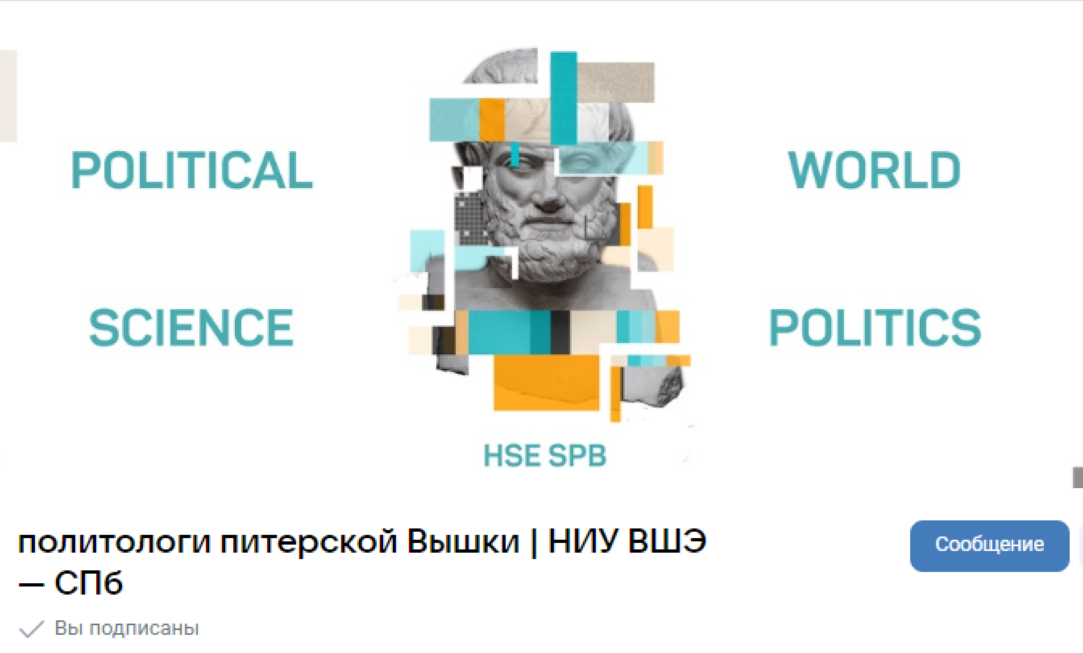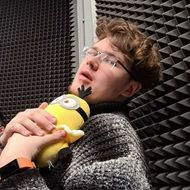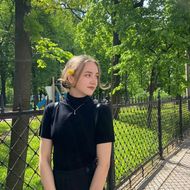I Am not an Expert yet, but I Do Like Studying here

I want to know how they feel and think. Now, the media outside Russia has portrayed Russians in a way that is not the true definition of them. There are things I still don’t like, especially the mean face. I find cigarettes uncomfortable. Public display of affection is something I have not yet embraced. In fact, I am not sure I will be able to embrace it. To satisfy my curiosity and also to let you know about my course of study, I decided to interview my classmates about why they chose our study programme Political Science and World Politics.

Vladislav Ovcharenko,
a second-year student of Political sScience and World Politics Programme
First, thank you, Daniel, for allowing me to participate in this interview. What influenced me first was interest. In high school, I had a penchant for history, but general history was kind of boring to me. I wanted to learn history that also involved some state relations. I wanted to know how the institutions of the state and the military influenced each other, not in the sense of human anthropology. Also, the law faculty, jurisprudence in particular, was equally boring to me; I did not want to study all the state laws. So, I had history and international relations left. I want to understand the history of my country, the rich cultural heritage of Saint Petersburg, the world wars, and all the events that shaped the lives of people. Having participated and won olympiads in high schools in the field of history, I knew that I really didn't want to study it, but I also didn't want to leave it behind. So, when it was time, I chose Political Science and World Politics, which combines both political science and international relations with history in it. In Russian universities, international relations and political science are studied differently. Also, since the programme is entirely in English, I want to be able to practice my English on a daily basis. Which will help me improve my communication.
Honestly, I don’t have any regrets so far. I am happy that I chose this programme. There are many reasons that convinced me that I made the right decision. As I had already mentioned, I have the opportunity to practice my English daily. The broad curriculum includes political philosophies, law, and many others. While I may not be in the philosophy department, I have good skills in understanding philosophy now. I think the technical skills are also good, like digital literacy, Python, and data analysis. All these are relevant skills that will help any student even after university, and they are very important for me. I also like the community of our faculty and the programme, as well as the ability to meet people from other countries and cities. An immense way for socialization. Honestly, before my resumption, I was pretty shy, but this has changed.
Honestly, I don’t have any regrets so far.
Honestly, I can’t say it is ideal right now because of political factors and government policies; some of the exchange destinations were halted and incoming exchange students were reduced tremendously. But comparing with other faculties and other Russian universities, I might be wrong, but this is the most internationalized programme in Russia because we study in English and are allowed to use libraries from other universities like Harvard and Cambridge. Multiculturalism is also advantageous, as we've got students not just from our government-friendly countries but also from Europe. The double degree — I don’t know much about it for now. I might find out about it in the future, as I already know people who studied in China, South Korea, Germany, and other countries. The number of exchange programmes and destinations got reduced now, I do hope that things will get better soon with regards to government policies.
As you know, learning a new language depends on the track you’re focusing on. I am focusing on Europe. So, I will be learning German. This isn't just because of my academic interest. I am interested in Germany, German culture, music, and classical music, for example. I adore German philosophers. I was thrilled that I would be studying a second language. I am a bit worried about studying Chinese. As you know, Chinese is a difficult language. I study Japanese personally, and it takes a lot of effort. European languages are easier to study. Sadly, I got to know that we’re to study the second language for three semesters. I don’t think three semesters are enough to learn a language. For me, I think I will need extra lessons to improve my study of foreign languages because A1 and B2 aren’t sufficient because of my academic interest. So, I will need more time.
The pleasure is mine Daniel. Thank you

Sofia Vazhenina,
a second-year student of Political Science and World Politics at HSE University in Saint Petersburg
Actually, my main expectation was in world politics, because that was what I was interested in, as I had low enthusiasm for political science. So, when I saw the combination, I felt it would be remarkable, since we don’t have such a combination in other Russia Universities. It is either political science or world politics. A year after studying political science, I discovered it is good as well. At the moment, we do not have much discussion on world politics, as this is the beginning of the second year. So, I am still waiting for courses in world politics and international relations, which will help me know how countries are connected, world history, and how global politics are conducted. I am still expecting more, while building my interest in political science.
Speaking about the regional tracks, I am ambivalent about that. I knew that I wanted to study Asian countries, but that does not mean that I do not want to go to Europe or post-Soviet countries at all. So I was sad that I had to choose something. Just one region. But I was later relieved when I realized that we’re not restricted to that one region alone. We can do other things, in terms of our research papers, final thesis, and other things. The track can help give us specifications. I can’t say for sure what I will be doing later, but I think the regional track will help me in terms of having a better understanding of some particular region.
I am not an expert, and I may not have enough information about that. From a student’s perspective, I really want to see more history, because one year of political history is not really enough. In some of the countries we focus on, we want to go deeper than what we’ve already studied in political history. To give an example, when we were studying political ideas in most of the classes, I needed to search for the historical background of the philosophers and their countries. I should quickly add that my desire for more history was rooted in the fact that I wasn’t interested in history before, and that has become a huge problem for me now. Of course, I passed the State History Examination when I was applying to HSE University. The history we studied for that examination was different from the history that someone needs in reality. In general, I should say more about world politics and history.
You’re welcome, Daniel. I am glad to speak with you, and I wish you well in your future work.
